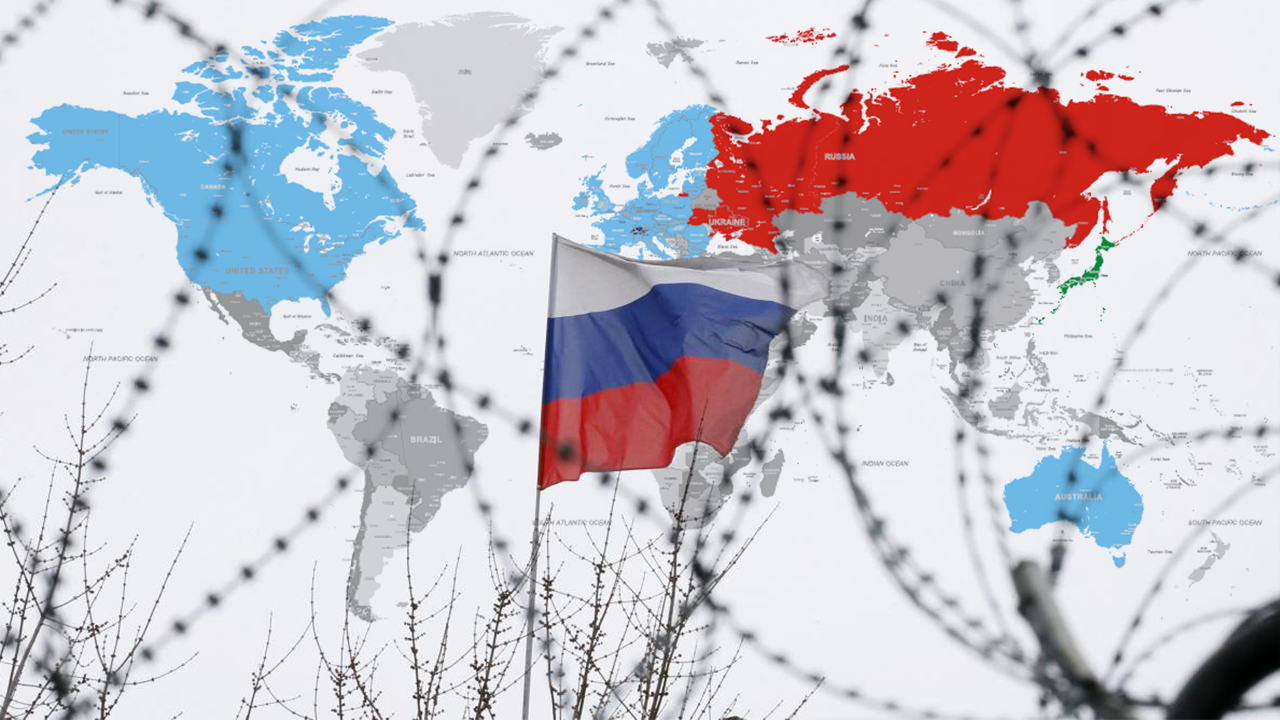Wed Mar 02, 2022
Ukraine Crisis: Severe Sanctions against Russia
The conflict between Russia and Ukraine, which has been at the top of the agenda of the markets for some time, escalated in full sense when the Red Army started its operation in Ukraine on the critical morning of February 24.
As Russian President Vladimir Putin announced that the Russian military launched a military operation in Ukraine, there were explosions in many areas of Ukraine, including the capital Kiev. And dozens of Russian and Ukrainian soldiers died as a result of the conflict.
While the forecasts for the duration and size of their military operations are uncertain, the leading public authorities of developed countries decided to implement a number of sanctions aimed at ending the invasion. Especially in the UK, which has been one of the most active countries since the beginning of the crisis, Prime Minister Boris Johnson announced a new package of additional sanctions targeting Russian banks, companies, organizations and individuals.
UK PM branded Vladimir Putin a 'blood-stained aggressor' and he announced the Government’s largest ever package of economic sanctions against Russia. Oligarchs, tech exports and sovereign debt is being targeted in a plan to put pressure on the Russian president after the invasion of Ukraine.
Announcing that it will target all major Russian banks, 5 Russian oligarchs and more than 100 companies and individuals, Johnson noted that the assets of all major Russian banks will be frozen, as well as the activities of the Russian airline Aeroflot will be terminated.
On the other side, US President Joe Biden announced a series of sanctions at a press conference late last night. Announcing that Russian banks in America will have their assets frozen and restrict Russia's ability to trade in dollar, euro, pound and yen, Biden stated that they have made the decision to cut Russia's high-tech exports in half and will protect all NATO territory.
In addition, European Commission President Ursula von der Leyen announced that they will enact new sanctions against Russia, which has intervened militarily in Ukraine, in the new week. The Commission will ban the sale of all aircraft spare parts and equipment to Russian airlines, Leyen said, adding that they have also limited access to important technologies such as the chips needed by Russia.
In Germany, the largest economy in Europe, Prime Minister Olaf Scholz reported that he had ordered the approval process of the Nord Stream 2 gas pipeline, which will transport Russian gas to Germany, to be halted. In turn, French Finance Minister Bruno Le Maire stated that they want to isolate Russia financially and that it remains on the table to take Russia out of SWIFT, but this is the last resort.
In the Asian region, the biggest reaction came from Japan. Prime Minister Fumio Kishida said that the allocation of visas to official officials from the attacked regions will be suspended, their assets will be frozen and the trading of new Russian bonds within Japan will be banned. However, China, Asia's locomotive, remains silent.
While the Central Bank of Russia (CBR) issued a statement that Russian banks developed measures to prevent them from being affected by the sanctions and that they are ready to use additional tools to maintain the stability, if needed. Government officials also express that they will respond to the countries that impose sanctions. As of today, Russian airspace will be closed to British aircraft, including transit flights.
